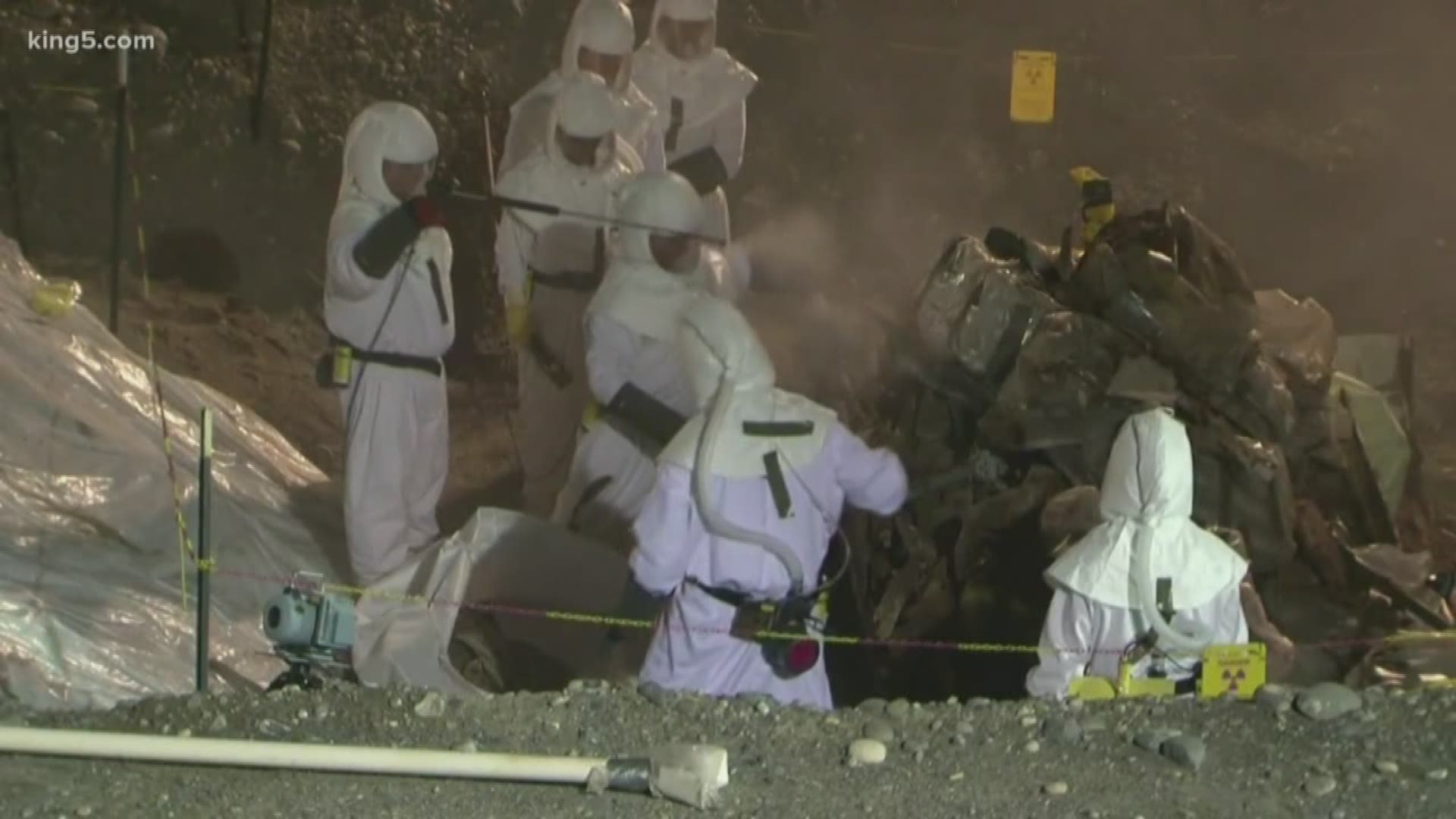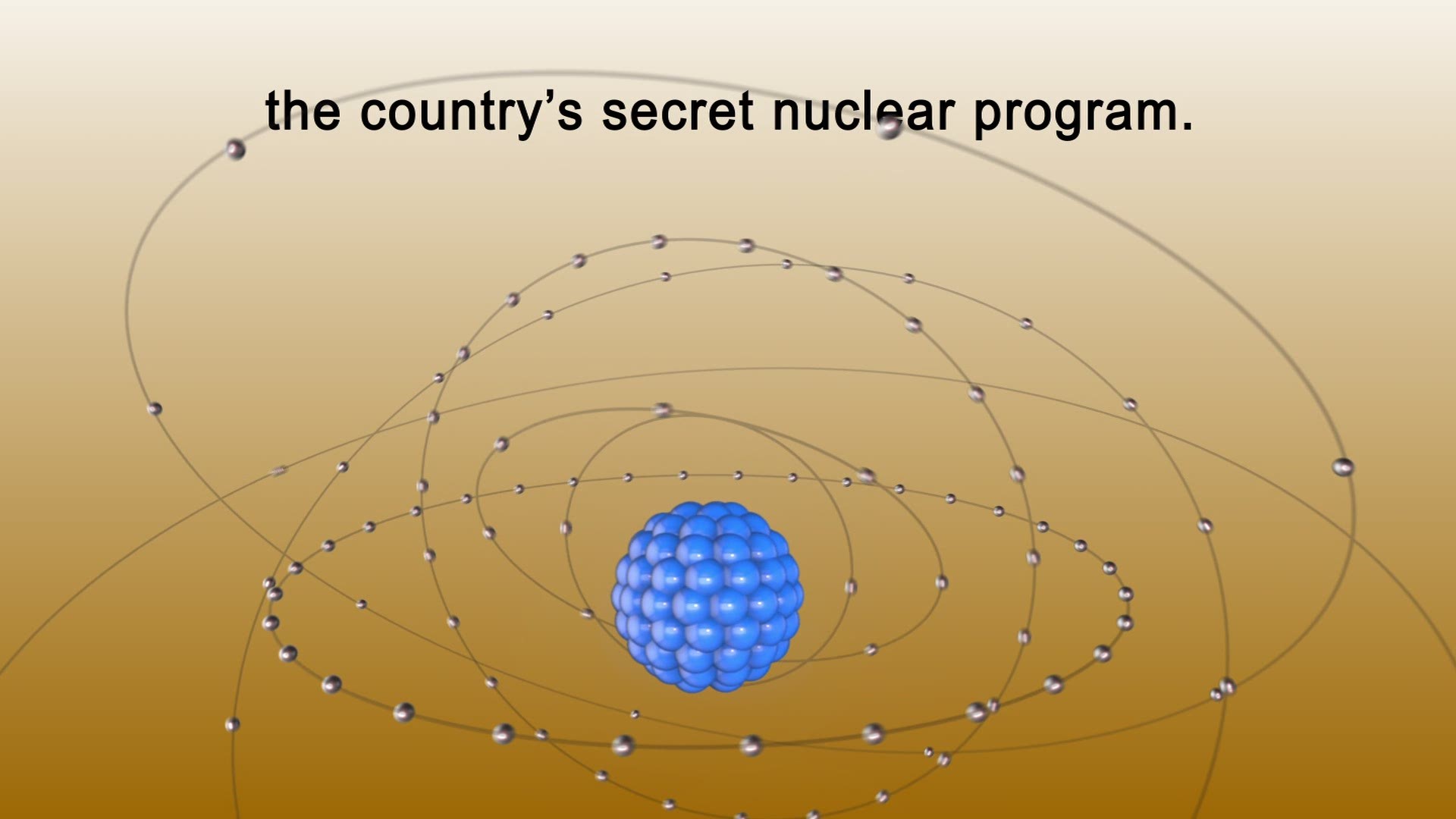A federal judge on Thursday ruled against the U.S. Department of Justice (DOJ) in its effort to overturn a Washington state law aimed at helping sick Hanford workers obtain worker’s compensation benefits.
The ruling by U.S. District Court Judge Stanley A. Bastian means the law, that went into effect last year, will stay in place.
Washington state Attorney General Bob Ferguson praised the court’s decision.
“It was disappointing to see the federal government once again fighting against doing the right thing for the men and women of Hanford. The court appropriately rejected the Trump Administration’s attempt to undermine our state protections for Hanford workers," Ferguson said. "Hanford workers do incredibly important work cleaning up the federal government’s nuclear (bomb-making) program. If they get sick as a result, they deserve the ability to access the benefits they have earned."
A two-year KING 5 investigation found Hanford workers have been systematically denied their medical claims through a self-insured worker compensation program. Unlike most other employers in the state, the Department of Energy (DOE), which owns Hanford, runs its own program through a government contractor and is responsible for paying out claims.
The Washington State Department of Labor and Industries is tasked with oversight and the new law directs the state to allow the presumption of occupational illness. Prior to the new law, it was the worker’s responsibility to prove illnesses were related to work activities.
The DOJ filed the lawsuit to force the state to overturn the law on December 11, 2018. The Justice Department wrote in the filing that the law is unconstitutional and discriminatory against the federal government.
“(The law) imposes significant burdens on the Federal Government and its contractors without imposing them on other employers in the State, all in violation of the Supremacy Clause of the U.S. Constitution. This action seeks to enjoin implementation of this improper statute and have it declared invalid,” wrote attorneys for the civil division of the U.S. Dept. of Justice.
In the decision filed Thursday, Judge Bastian wrote the state has the legal power to enact this kind of law to support workers in extraordinary dangerous work environments.
Also see | What is Hanford?
The cleanup operation at Hanford is “unprecedented in scale and complexity,” wrote Judge Bastian. “(Current federal law) gives Washington powers that include the ability to legislate…to address specific risks to employees in specific industries.”
Judge Bastian cited a similar presumption of occupational illness provided by the legislature for firefighters in Washington state.
Hanford is where plutonium was produced as part of the secret Manhattan Project to fuel the nuclear bomb dropped on Nagasaki, Japan during WW II. Production continued throughout the Cold War as the country stockpiled nuclear warheads. Since 1989, the activity at Hanford has been a cleanup effort only as the nuclear bomb-making project left behind a toxic legacy of contaminated soil, water, buildings, and 56 million gallons of liquid nuclear waste, considered the most dangerous matter in the world.
The executive director of the Seattle-based Hanford watchdog group, Hanford Challenge, said the legal victory will help hundreds of Hanford workers.
"This is a victory for Hanford workers who sacrificed their health for the safety and security of the nation. It would be nice if the federal government would support these workers instead of fighting them at every step of the way. Thanks to Attorney General Ferguson for his unflagging and excellent work on their behalf."


